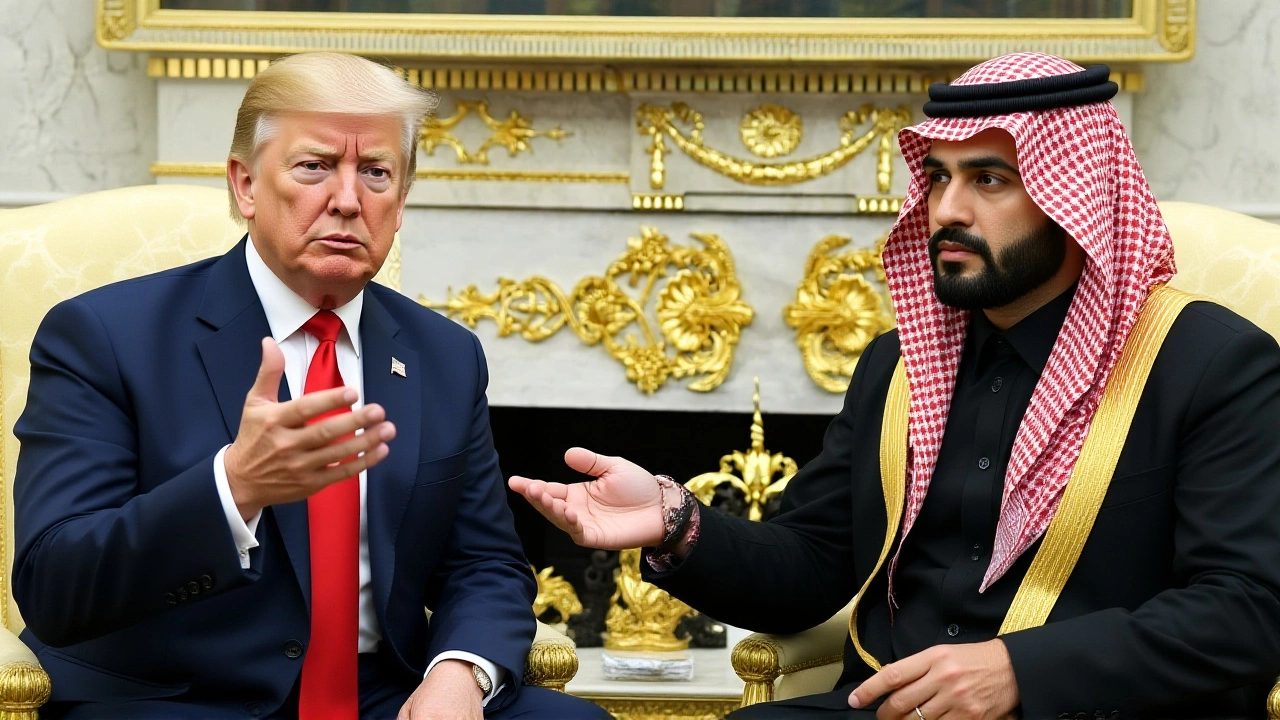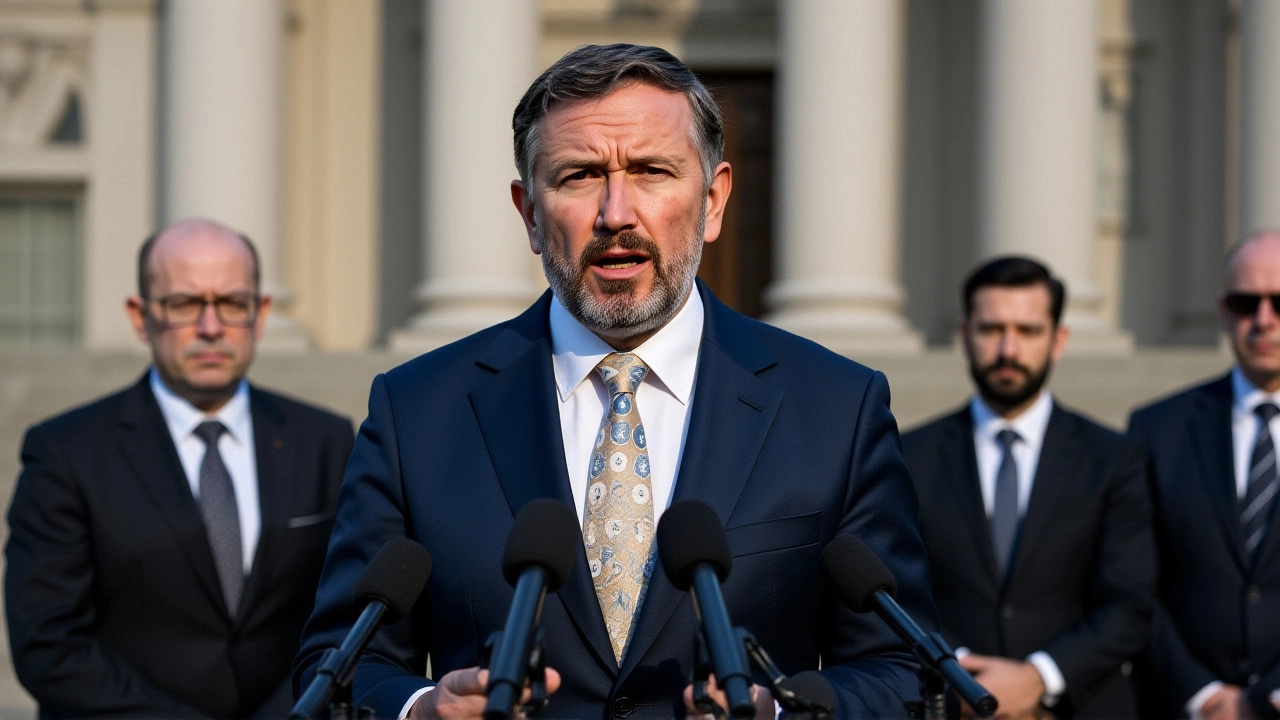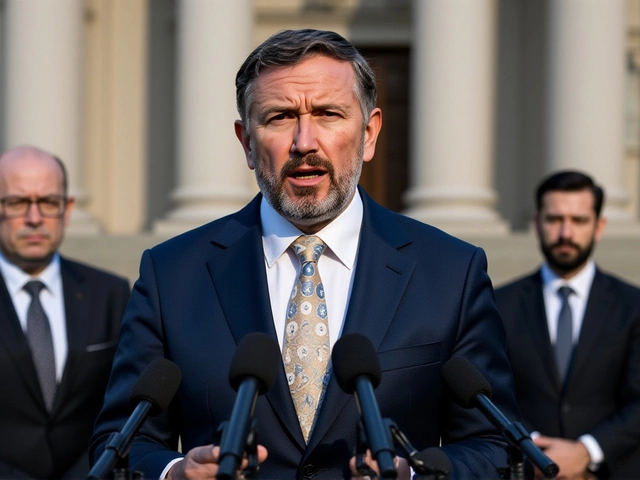The Epstein files are finally coming out — and this time, there’s no turning back. On November 19, 2025, the United States Congress passed the Epstein Files Transparency Act, mandating the U.S. Department of Justice and the Federal Bureau of Investigation to release all documents tied to convicted sex offender Jeffrey Epstein, his accomplice Ghislaine Maxwell, and the controversial 2008 plea deal that let him walk free. The law, introduced by Representative Thomas Massie, R-KY and Representative Ro Khanna, D-CA, sets a hard 30-day deadline: documents must be public by December 19, 2025. This isn’t just about closing a dark chapter — it’s about forcing accountability where power once shielded the guilty.
Why This Vote Wasn’t Just About Documents
The bill didn’t come out of nowhere. For years, victims, journalists, and even some lawmakers have begged for transparency. But nothing changed — until last week. Between November 12 and 18, 2025, the House Oversight Committee quietly released a cache of Epstein’s emails and texts. One message, dated 2011, referenced Donald Trump in a way that sent shockwaves through Washington. Suddenly, the quiet demands for disclosure became a roar. Speaker Mike Johnson, who’d tried to control the narrative with his own investigation, found himself outmaneuvered. Massie and Khanna’s bill, once seen as a long shot, now had momentum — and bipartisan backing.At a press conference just hours before the vote, Massie didn’t mince words. "There’s becoming a reckoning in Britain that needs to happen in the United States," he said. "A prince lost his title, the ambassador to the United States lost his job. We need to see those same kinds of consequences here." He wasn’t naming names — but everyone knew. In the UK, Prince Andrew was stripped of his royal duties and Sir Kim Darroch, the British ambassador to Washington, resigned after leaked cables exposed Epstein’s ties to elite circles. Massie’s point was clear: if power protects the guilty abroad, it’s time to stop letting it do the same here.
The 2008 Deal That Broke the System
The heart of this controversy lies in a single, astonishing decision: the 2008 non-prosecution agreement. Back then, Jeffrey Epstein, a billionaire financier with homes in New York City, Palm Beach, Florida, and a private island in the U.S. Virgin Islands, avoided federal charges thanks to a secret deal negotiated by then-U.S. Attorney Alexander Acosta. He served just 13 months in a county jail, with work release privileges. Worse, the agreement explicitly shielded "any potential co-conspirators" from prosecution. It wasn’t just lenient — it was a legal get-out-of-jail-free card for others.Acosta later became Secretary of Labor under President Trump. He resigned in July 2019 as public outrage over the deal boiled over. Now, with the Epstein Files Transparency Act signed into law, the DOJ must release all internal memos, emails, and investigative notes from that time. Did anyone at the highest levels of the Justice Department know what was happening? Were there political pressures? The documents may not answer everything — but they’ll answer more than we’ve ever seen.

What’s Missing — And Why It Matters
Here’s the twist: the new law doesn’t touch one critical piece of the puzzle — money. Senator Ron Wyden, D-OR has been pushing for years to force the U.S. Treasury Department to release Epstein’s full financial records. Those bank transfers, shell company payments, and offshore transactions could trace the real architecture of his network — who paid him, who he paid, and who benefited. Without those records, the story remains incomplete. "You can’t understand the web without seeing the money," Wyden told reporters. "The DOJ files show who he knew. The Treasury files show who he bought."That gap is intentional. The bill’s sponsors knew they couldn’t force Treasury’s hand — not without a separate legislative fight. But the pressure is mounting. Financial investigators are already poring over leaked data from the 2024 Paradise Papers and the 2021 FinCEN leaks, looking for Epstein-linked accounts. If even one transaction leads to a sitting senator, a foreign diplomat, or a billionaire investor, the fallout could be seismic.
International Ties — And the Quiet Whispers
Intelligence sources cited by a British magazine (still unnamed, but widely believed to be The Spectator) suggest Epstein’s network spanned at least six countries: the United States, United Kingdom, Israel, Russia, Qatar, and others. He wasn’t just a predator — he was a broker of influence. Wealthy men paid for access. Foreign officials used him as a backchannel. Even in places where sex trafficking laws were strict, Epstein moved freely. His private island, Little St. James, became a global hub for the powerful — and the predatory.Documents released by the House Oversight Committee already show Epstein texting with figures linked to foreign embassies. One 2009 message, referencing "the Russian delegation," was redacted — but not before being seen by investigators. Another, sent from a Qatar-based number, asked for "the usual arrangements" for a "high-profile guest." The names are still hidden. But the pattern is clear: this wasn’t just about sex. It was about power, protection, and payment.

What Comes Next
The clock is ticking. The DOJ has until December 19, 2025, to release the documents — assuming President Biden signs the bill immediately. The FBI will redact names of victims, images of abuse, and anything tied to active investigations. But everything else? It’s coming. That includes internal emails between prosecutors, notes from interviews, and even drafts of the 2008 plea deal.Expect a media frenzy. Expect legal battles. Expect lawsuits from people named in the files who claim their reputations are being ruined. But also expect survivors to finally get some answers — and perhaps, some justice.
And while the world waits, one question lingers: who else knew? Who else stayed silent? And who, in the end, will be held accountable?
Frequently Asked Questions
Will the Epstein files reveal names of powerful people?
Yes — but not necessarily in the way people expect. The documents won’t contain a single "client list," but they’ll include emails, meeting logs, flight manifests, and financial references that connect Epstein to politicians, diplomats, and billionaires. Names like Alexander Acosta, Ghislaine Maxwell, and Donald Trump have already surfaced. More may emerge, especially from communications with foreign officials in the UK, Israel, and Qatar.
Why weren’t these files released earlier?
For over a decade, prosecutors, agencies, and even judges cited privacy, national security, and ongoing investigations as reasons to withhold documents. But critics say the real reason was protection — of powerful individuals. The 2008 plea deal was designed to bury evidence. Even after Epstein’s 2019 arrest, the DOJ dragged its feet. It took leaked emails and public pressure from lawmakers like Massie and Khanna to force action.
What’s the difference between the DOJ files and Treasury records?
The DOJ files show who Epstein knew and what he did — conversations, travel, abuse allegations. The Treasury records — still not required to be released — show who paid him, who he paid, and how he moved money across borders. Those financial trails could expose money laundering, offshore accounts, and even bribes. Without them, we see the social network — but not the economic engine behind it.
Could this lead to new criminal charges?
Possibly. If the documents reveal that federal officials knowingly covered up crimes or obstructed justice, new prosecutions could follow. The 2008 plea deal itself may be re-examined for prosecutorial misconduct. Even if no new charges are filed, the public exposure could trigger civil lawsuits, congressional hearings, or international extradition requests — especially if foreign nationals are named.
Why did the UK take action while the U.S. didn’t?
In the UK, public pressure and media scrutiny forced institutional consequences: Prince Andrew lost his military titles, and Ambassador Kim Darroch resigned after leaked cables exposed his ties to Epstein. In the U.S., similar connections were buried under legal technicalities and political protection. Massie’s comments highlighted this double standard — and made it clear: Americans are tired of being treated like a second-tier justice system.
What if the documents are incomplete or destroyed?
Investigators have already warned that some records may be missing. Epstein’s lawyers, aides, and associates have a history of destroying evidence. If key files are gone, the DOJ must certify that under oath. That certification itself could become evidence of obstruction — and trigger new congressional subpoenas or even criminal contempt charges. The truth may not be fully recoverable — but the cover-up might still be exposed.



